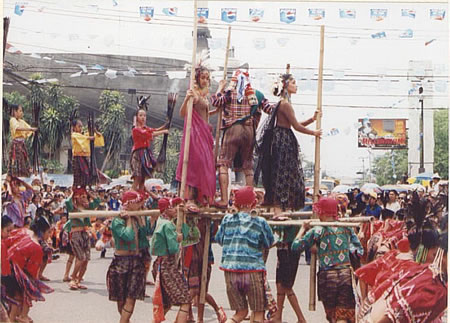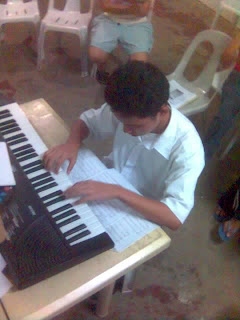While Dodong and Blas were walking, descending to the yard, they both are quite. Blas thought what would his father’s reaction about his proposal. He did not know what to act whatever his father’s decision about his plan. However, Dodong was still puzzled on how to start a conversation. Suddenly, Dodong stops where the moonlight hits both of them.
Dodong talks anything about himself, his ambition, his experiences, his story. He tries to tell Blas how he met her wife, and how he asks proposal to his wife and ask for a blessing to his parents, and how they were married. He tried to tell Blas the trials and difficulties the couples have encountered and sometimes, he could not do anything because he did not finished his studies. He told Blas his realization, that love is not the only reason to get into marriage and marriage is not the only reason to show to the girl that you really love her. He let Blas realize that love can wait, if it is truly love what you felt, and then patience must be in your self. As he spoke these words to Blas, his voice was still calm but full of emotions telling Blas to understand the truth and the situation. That before he makes a decision, he should think what will be its consequences. He wanted Blas to be wise about many things. One of them was to understand why Life did not fulfill all of Youth’s dreams. Why it must be so. Why one was forsaken after love.
Dodong was keep talking until 5:00 am in the dawn while poor Blas was only still awake, trying to listen to his father’s sleepy voice.
After the conversation it is almost 6:00 am in the morning, Dodong went back to the house living Blas in the warm morning. Blas was siting in the bench. His father went directly to his room to sleep. While looking at the sun, Dodong kept thinking about what his father was talking about.
When Dodong woke up, he just realize that he missed his work.
While Dodong and Blas were walking, descending to the yard, they both are quite. Blas thought what would his father’s reaction about his proposal. He did not know what to act whatever his father’s decision about his plan. However, Dodong was still puzzled on how to start a conversation. Suddenly, Dodong stops where the moonlight hits both of them.
Dodong talks anything about himself, his ambition, his experiences, his story. He tries to tell Blas how he met her wife, and how he asks proposal to his wife and ask for a blessing to his parents, and how they were married. He tried to tell Blas the trials and difficulties the couples have encountered and sometimes, he could not do anything because he did not finished his studies. He told Blas his realization, that love is not the only reason to get into marriage and marriage is not the only reason to show to the girl that you really love her. He let Blas realize that love can wait, if it is truly love what you felt, and then patience must be in your self. As he spoke these words to Blas, his voice was still calm but full of emotions telling Blas to understand the truth and the situation. That before he makes a decision, he should think what will be its consequences. He wanted Blas to be wise about many things. One of them was to understand why Life did not fulfill all of Youth’s dreams. Why it must be so. Why one was forsaken after love.
Dodong was keep talking until 5:00 am in the dawn while poor Blas was only still awake, trying to listen to his father’s sleepy voice.
After the conversation it is almost 6:00 am in the morning, Dodong went back to the house living Blas in the warm morning. Blas was siting in the bench. His father went directly to his room to sleep. While looking at the sun, Dodong kept thinking about what his father was talking about.
When Dodong woke up, he just realize that he missed his work.


































